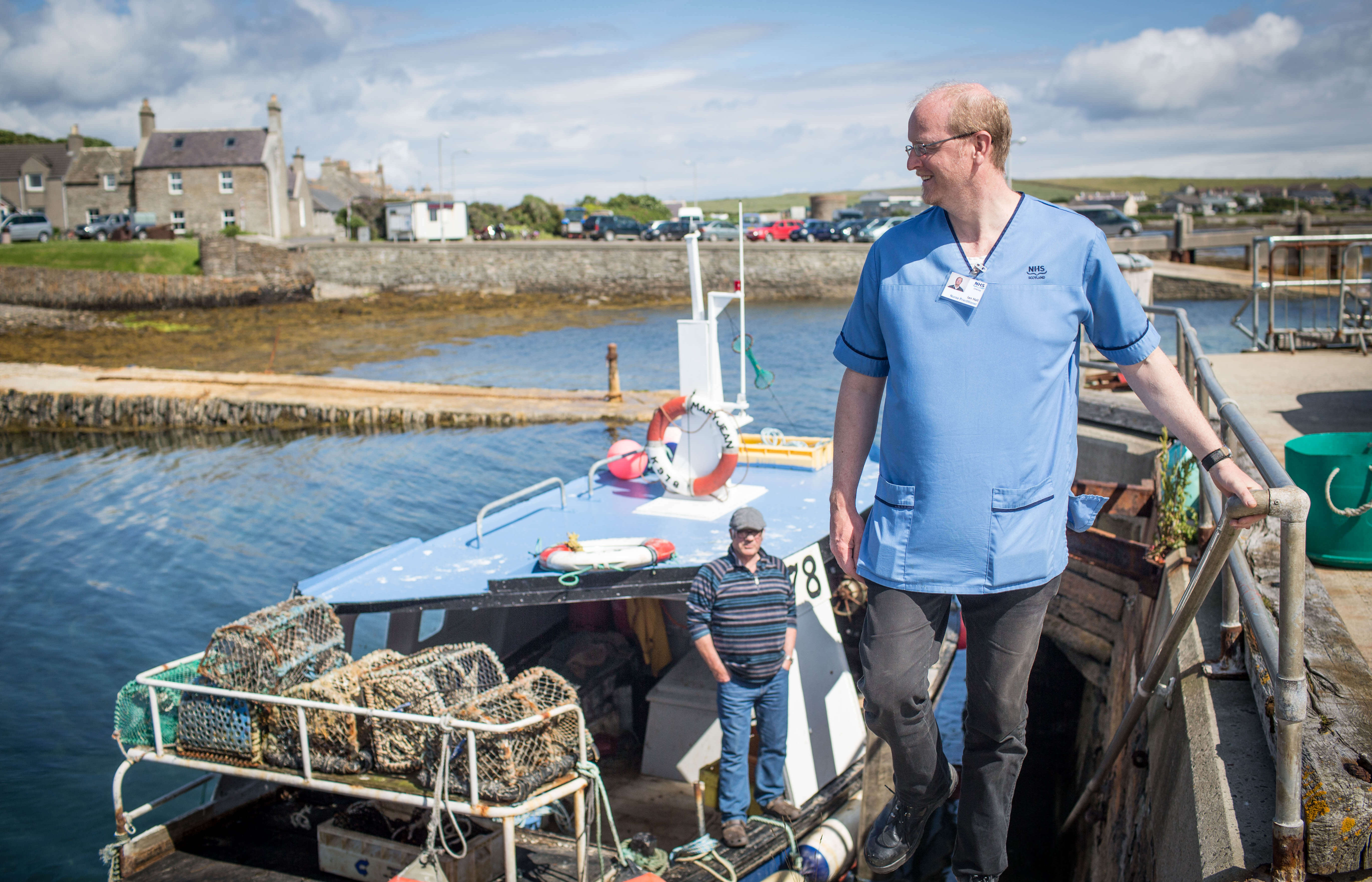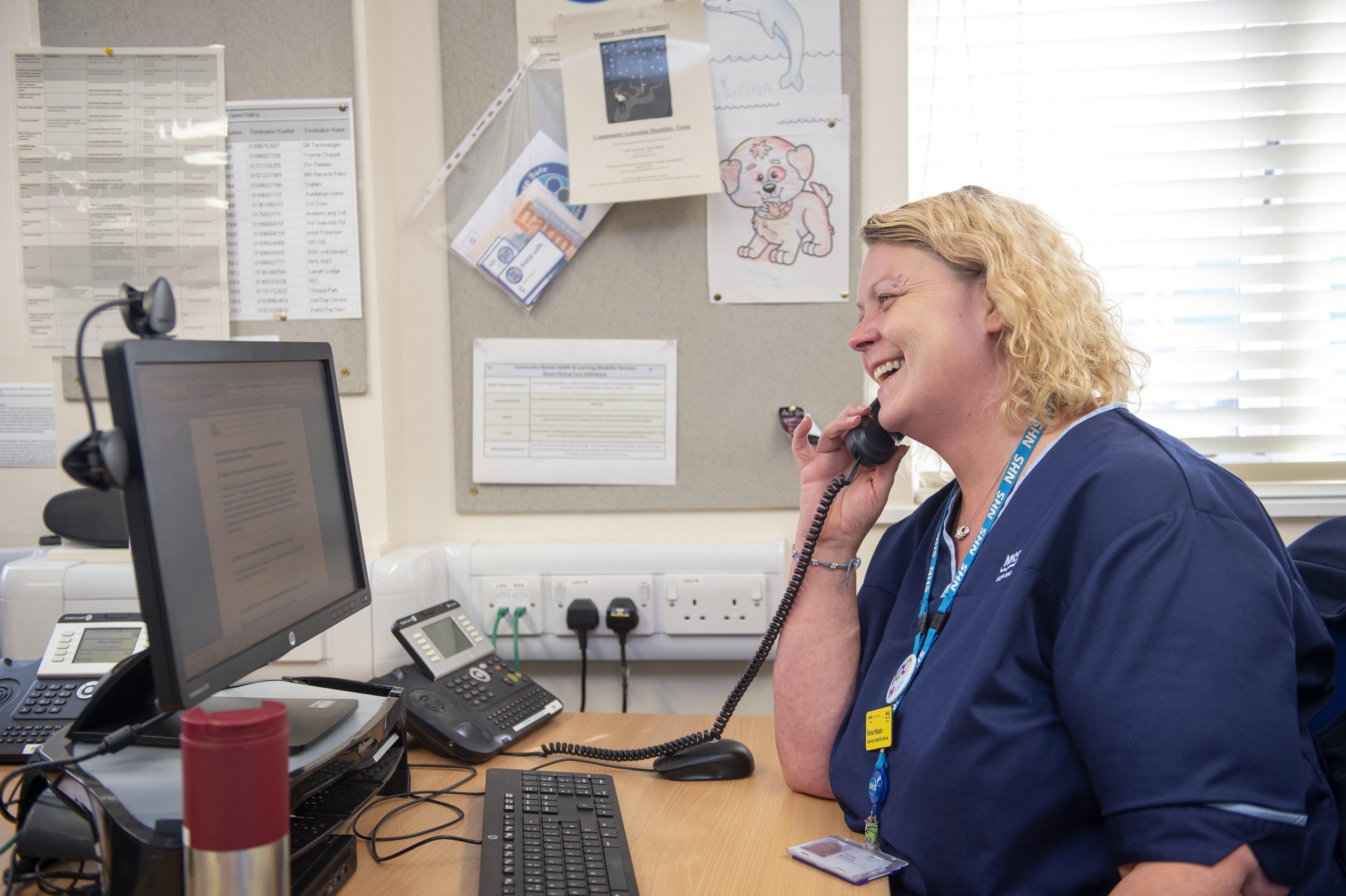
Learning disability nurse
Community learning disability nurses promote human rights-based approaches to healthcare for people with learning disabilities, ensuring they are supported to express their views and make choices about their care. Community learning disability nurses facilitate health screening and health checks, help to safeguard those at risk of harm, support other professionals, and contribute expertise in positive behaviour support.

Fiona Mason
I am a senior charge nurse within the Scottish Borders Learning Disability Service – a multidisciplinary team working across health and social care, made up of around 80 or 90 people working together in the community. My base is in Berwickshire and the service covers a large, mainly rural, geographical area with the team split into east and west. There are around 600 adults with learning disabilities known to services in NHS Borders and I am involved in managing referrals to the team and managing my own caseload. I am hugely passionate about advocating on behalf of people with learning disabilities so that services understand the need for change to make them more accessible to help people achieve their potential.
Working as a community learning disability nurse I am in a very privileged position to be welcomed into people’s homes to work alongside individuals, their families and carers. To have people share parts of their life story with me is something I never take for granted. A large part of my role is assessing, monitoring, managing, and treating physical and mental health. I work together with people with learning disabilities to help them navigate the system, so they are able to receive the expert care they need. It’s not just about health care, it’s also about exploring people’s social, emotional needs and supporting individuals and families to find the connections and activities they’d like to help them live life to the full. It is hugely important to me to use my expertise and professional knowledge to help other services adapt what they offer so they can better meet the needs of people with learning disabilities.
Significant skill is required when communicating with people with learning disabilities and this is our particular expertise as LD nurses. Good communication is at the heart of all that I do – being able to make information understood and to enable trust to develop. Building relationships happens over time and requires deep listening skills, giving people as much of your time as they need, and observation skills to notice the small signs and behaviours that each person uses to signal their preferences. I’ll always be honest with people which may sometimes be difficult however relationships built on trust, respect, and honesty, as well as professionalism supports these conversations. I use my clinical skills to assess mental and physical health; assessing risk is particularly important. I have a solid understanding of all the relevant legislation around capacity and safeguarding which is essential in my role. For me, being passionate and treating everyone with compassion and empathy is at the heart of this job to meet the needs of the individuals. Taking a person-centred approach, I might support someone to go to a job centre appointment because if they didn’t attend then their benefits may be stopped and that would impact on their health and wellbeing. My passion for this role comes from the small things – being able to build relationships with people who might have faced trauma or adversity, who might have been let down by so many others, to be able to build a relationship where they will pick up the phone to you to seek help or advice is such an important thing. Getting that wee smile when you’ve finally connected with someone is just a blessing.